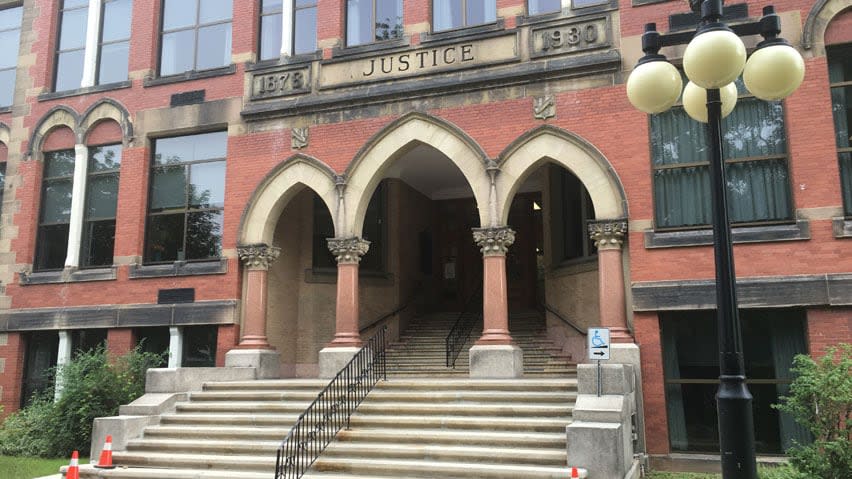Gender-identity review began as 'political decision,' province's lawyer argues

The province is under attack in court for withholding information about why it started a controversial review of its school gender-identity policy.
But the province says it does not need to reveal that information because the decision to begin the review was a political one.
The Canadian Civil Liberties Association has filed a judicial review challenge to the changes to Policy 713, which now requires parental consent before school staff can use certain students' chosen names and pronouns.
The association alleges that the process Education Minister Bill Hogan followed, and the changes themselves, are improper and unconstitutional.
Before a judge can decide if that's true, the province has to produce all records that Hogan considered when he made the changes to the policy. The province provided this record, approximately 4,000 pages, seven months after the lawsuit was filed.
In court this week, the association argued that record is incomplete. Lawyers said documents about how the policy review actually came about are missing, and the province is withholding too many emails and briefing notes without justification.
Lawyers said the judge needs these documents to properly decide the case.
The province's lawyer, Steve Hutchison, said documents about why the minister decided to start the review of the policy are irrelevant, because that was a "political decision."
"That political decision is not reviewable by this court. It's reviewable by the electorate," Hutchison said.
The province is withholding several briefing notes presented to the minister by claiming "public interest immunity." This means that according to the province, if the records are released there would be harm to the public interest or the administration of justice.
The civil liberties association argued the province is required to provide evidence to prove this.
Hutchison said some of the briefing notes were prepared for Hogan before cabinet meetings and that means they're confidential. He said releasing them would harm the public interest because cabinet members are supposed to feel safe enough to have honest arguments about issues.
"If this is released … ministers and former ministers would be put in front of a microphone and asked, 'What was your position?'" he said. "Members of cabinet believe that what they're discussing is not going to be in the newspaper the next day."
The association said this argument doesn't apply in this case because changes to Policy 713 were up to Hogan alone and were not decided at cabinet.
Without records, judge 'blindfolded,' lawyer says
Justice Richard Petrie said he will not have a decision immediately and set dates for the case to come back in July.
According to an affidavit, the province compiled the records by first collecting all documents related to the policy review. The affidavit says the province went through the documents and identified which ones are likely to have been considered or reviewed by the minister. Those documents were then presented to the minister to confirm that he, indeed, laid eyes on them.
Adam Goldenberg, the lawyer representing the community intervener, including local 2SLGBTQ+ support organizations, said the province should have stopped at the first step. He said that this filtering is not appropriate and gives too much leeway to the province to curate what the judge gets to see.
He said if the judge accepts the record as it is, "You are going to be casting in the dark, blindfolded," Goldenberg said.
Hutchison said it is the civil liberties association that's casting, by "going on a fishing expedition" for documents to support their case. He said the process followed by the province to create the record was standard practice.


